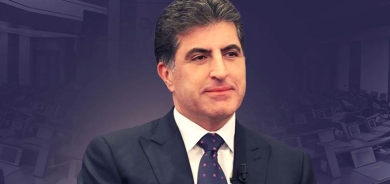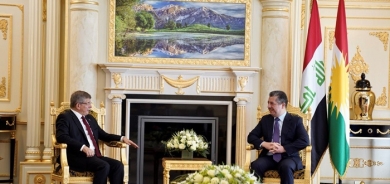Clinton says Yemen unrest a ‘major concern’ as al-Qaeda seizes more southern towns

“The instability in Yemen is a great concern first for the Yemeni people, but also the region and the world,” Clinton said during a visit to Ivory Coast.
“It remains a great challenge,” she said at a press conference. “There has been agreement with respect to the way forward that has not been fulfilled.”
A Gulf-mediated plan for Yemen calls for the election of a consensus president for a two-year interim period after which parliamentary and another round of presidential elections are to be held.
But Yemeni officials have said the unrest in one of the world’s poorest countries could delay the presidential election planned for February 21.
“We regret that the president has yet failed to comply with his own commitment to leave the country and to permit elections,” added Clinton, referring to embattled Yemeni President Ali Abdullah Saleh.
After a year-long brutal crackdown on mass anti-government protests which left hundreds of people dead, Saleh handed over power to his vice president until elections could be held while he remains honorary president.
The weakened central government has lost its ability to enforce its rule in outlying provinces, and al-Qaeda in the Arabian Peninsula (AQAP) has seized control of towns and cities in the restive south.
“We remain focused on the threat posed by al-Qaeda in Yemen and we continue to work with our partners there and elsewhere to insure that al-Qaeda doesn’t gain a foothold in the Arabian Peninsula through actions that would undermine the stability of Yemen and the region,” Clinton said.
Vice President Abdrabuh Mansur Hadi, who became Yemen’s de facto ruler after embattled President Ali Abdullah Saleh handed over his power under a Gulf-sponsored transition plan, announced the February election date last November in a decree.
Hadi is expected to be the sole candidate in the poll and will take over as consensus president for a two-year interim period, after which parliamentary and another round of presidential elections are to be held, as stipulated by the Gulf-mediated plan.
Yemen’s foreign minister has warned that insecurity resulting from months of mass protests and political unrest could delay presidential elections planned for next month.
“If we don’t deal with the security challenges ... it might be difficult to hold elections (as scheduled) on Feb. 21,” Abu Bakr al-Qurbi said in an interview with Al Arabiya Tuesday.
Qurbi said the security situation in the restive country was “worrisome”.
A brutal crackdown on mass anti-government protests and streets battles between government forces and the opposition since January of last year have left hundreds dead and weakened the central government’s ability to enforce control over much of the country’s outlying provinces.
On Monday, officials said AQAP and its local affiliates had taken over a town close to the capital Sana’a, a major advance for the militants.
A force of some 1,000 militants swept into Rada, and in just a few hours took full control of the town, forcing security forces to retreat from their military positions in and around the city, according to AFP.
Al-Qaeda also controls several other towns and cities in the country’s restive south, including Abyan province’s capital Zinjibar.
In the north, Shiites and Sunnis have been engaged in fierce battles in recent months, raising sectarian tensions and leaving dozens dead.
Zinjibar’s chief tribal leader, Sheikh Tariq al-Fadl, called on Yemeni authorities to find a “peaceful, political solution” to the al-Qaeda threat.
“The fact is that al-Qaeda is in control of Abyan and Shabwa among other areas and is implementing Islamic law in these places,” he told AFP by phone.
“A military solution is no longer possible.”
Fadl accused Saleh and his sons who control Yemen’s most powerful military units of abandoning the south.
“Where are the special forces... that Saleh and his sons control? Why have they not come to cleanse Zinjibar” of militants, he asked.
Opposition groups have repeatedly accused Saleh of intentionally allowing militants to take towns and cities to convince Western leaders that a Yemen without him at the helm will fall to extremists.
Hundreds of militants and soldiers have been killed in battles between Islamist fighters and government forces.
(Reuters)













